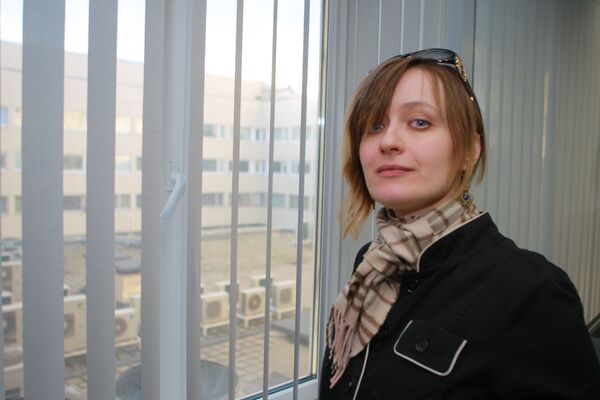It wasn’t so long ago that the summer dacha season for ordinary Russians was mostly associated with back-breaking gardening work, no hot water and similar “pleasures” of country life; whereas the trendy people just went abroad for vacation.
But for the Russian middle class, putting their own country in order is not limited to, say, protesting a law they find unconstitutional - it also involves making local vacation experiences more enjoyable. And while tourist infrastructure in the countryside leaves much to be desired, in the privacy of their own dachas, Russians are building little oases of comfort and fun.
For the newly trendy “dachniki” (as dacha residents are commonly called), new challenges involve getting decent Wi-Fi access and stemming the weekend flow of friends eager to leave the stifling urban environment for a day or so. And they frequently must contend with the fact that beyond their property, chaos can still reign.
“I love the dacha and I hate getting there,” a friend of mine, Mikhail, told me on a Friday afternoon, as he plotted his escape from Moscow to be at the dacha. “Driving there you first encounter the obligatory traffic jams, and then, of course, the terrible roads. Meanwhile, the elektrichkas [commuter trains] don’t have air conditioning and are full of loud people trying to sell you things.”
In my experience, though, the trip is still worth it. While the heat continues to rise from the Moscow pavements, you can find yourself transported on to a quiet veranda, with the crickets piping up in the grass and the teacups steaming. The skies, no longer bleached by urban light pollution, suddenly reveal that they are full of stars. If you’re lucky, you can even have a moment of silence - uninterrupted by car horns or a neighbor’s blaring stereo.
Moskovskiye Novosti has been searching out the so-called new dachniki, the people who are making dachas cool once again. They’ve recently interviewed a young couple, Lera and Semyon Katz, on the pleasures of dacha living.
Semyon, I believe, said something particularly relevant when talking about just what it is that makes dachas so special.
“A big plus of the dacha is its permanence,” he said. “Even if you can afford a weekend trip abroad... First of all, a weekend in a foreign country is expensive either way. Second of all, you have to go to the airport, to fly, to walk around somewhere... A dacha is much simpler in this regard.”
In an age where air travel is stressful nearly all over the world, the dachas present a useful antidote. You’re going away on vacation or on a mini-break - but what you’re really doing is coming home. The Katzes in particular drew Moskovskiye Novosti’s attention to the fact that the village where their dacha is located is known for its strong community - which stands in stark contrast to Moscow, where most people are strangers to one another and community is practically a foreign word.
The new style of dacha living represents not so much a lifestyle revolution, but a kind of downshifting - recognizing that sometimes, you don’t have to search out happiness as much as return to it, much like a wandering tomcat at the dacha will eventually find his way back.
Of course, it helps very much when you can afford it - and few young families in Moscow and elsewhere are in that economic bracket where their own dacha can be a tangible reality. My husband and I? We still only ever visit the dachas of our friends. Mikhail? He inherited his dacha from his grandmother. And as for Lera and Semyon, Moskovksiye Novosti pointed out that the charming dacha in question, complete with hammocks, murals and a basement to store the jam and the pickled tomatoes in, belongs to Lera’s parents.
The views expressed in this article are the author's and do not necessarily represent those of RIA Novosti.
Trendwatching in Russia is an extreme sport: if you’re not dodging champagne corks at weddings, you’re busy avoiding getting trampled by spike heels on public transportation. Thankfully, due to an amazing combination of masochism and bravado, I will do it for you while you read all about it from the safety of your living room.
Natalia Antonova is the deputy editor of The Moscow News. She also works as a playwright – her work has been featured at the Lyubimovka Festival in Moscow and Gogolfest in Kiev, Ukraine. She was born in Ukraine, but spent most of her life in the United States. She graduated from Duke University, where she majored in English and Slavic Literature. Before coming to Moscow, she worked in Dubai, UAE and Amman, Jordan. Her writing has been featured in The Guardian, Foreign Policy, Russia Profile, AlterNet, et al.
Trendwatcher: Glory & Balaclavas at Moscow International Film Festival
Trendwatcher: Smile Like You Mean It
Trendwatcher: In the Zone for Euro 2012
Trendwatcher: Old Farts & Pointless Papers
Trendwatcher: “Slumming it” at Moscow’s Jean-Jacques
Trendwatcher: Vacation time for Ugly Americans (and Brits, and Russians)
Trendwatcher: Where the Grass is Green and the Girls are Pretty
Trendwatching: The Unbearable Lightness of Being a Russian Pilot

